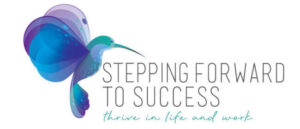
The holidays are well and truly over, and as we get stuck into the routine of work for 2022, many provisional teachers may be starting to feel overwhelmed.
It’s one thing to know the theory of how provisional teaching requirements will work for you, but juggling everything required for your certification while continuing to work is no easy task!
While a bit of stress is normal – and can even be productive for those working and studying – too much stress can lead to burnout.
That’s why it’s valuable to learn some coping strategies early on in the process. If you’re provisional teaching this year, take the time to build some healthy habits to protect your wellbeing and maintain a balance between work, study, and your personal life.
Here are my top tips to help cope with overwhelm and avoid burnout on your provisional teaching journey.
How Will You Manage Provisional Teaching And Meeting Requirements?
1. Get Organised And Have A Game Plan
When you’re overwhelmed, you feel like you have too much on your plate and not enough time to get things done. Although provisional teaching does come with quite a lot of requirements, I’m willing to bet that you actually can cope with everything ahead of you – you just feel like you can’t because you’re not clear on what’s required, or you don’t have a plan in place.
Before doing anything else, clear an hour in your schedule to get organised. Note down your deadlines in your calendar, schedule your mentor meetings and study time, and break down those bigger, scarier goals into bite-sized pieces to tackle week by week. Make a to-do list, organise your workspace, and take a deep breath.
Once you get really clear on what you need to achieve every day or week, you’ll feel more in control of your life and far less overwhelmed.
2. Control What You Can And Let Go Of The Rest
Too often, we spend our time worrying about things we can’t control. This is a surefire way to increase stress and overwhelm. It can be helpful to get our most pressing worries out of our minds and onto paper. Make a list of everything that’s bothering you. Then, go through the list and ask yourself, “Is this something I can change or control?”
If it is, then come up with a concrete plan to tackle the problem. However, if you’re worried about something that’s outside of your realm of control, try to let it go.
3. Create Clear Boundaries
When you’re a provisional teacher, it’s easy to become consumed with teaching. You spend your days teaching, you think about it during your commute, your evenings are spent planning more teaching, and your weekends are for studying – you guessed it, teaching!
While it is admirable to want to be the very best teacher you can be, this kind of commitment is neither healthy nor sustainable.
To survive a career as an educator, you need to learn how to create boundaries between work, study, and home. Find ways to switch out of “teacher mode” each day so you can unwind when you get home. Set clear time slots for study and work, but make sure you leave those both behind when it’s time to relax.
4. Take Care Of Yourself
Nothing is more important than your physical and mental wellbeing. Provisional teaching can be rewarding, exciting, and fulfilling, but it can also be draining and challenging.
Teachers must take care of themselves in order to do their jobs well. Good quality sleep is essential, as is eating nutritious meals regularly and drinking lots of water. These may seem like basic activities but are often the first things to go out the window when we’re feeling overwhelmed.
5. Learn How To Manage Stress
Stress is unavoidable in life, but we don’t have to suffer because of it. Take this opportunity as a provisional teacher to develop healthy habits to help you cope with stressful times.
Along with the self-care basics above, learning mindfulness and calming the body and mind is vital. Exercise is proven to reduce depression and anxiety and doesn’t have to take too much of your time. Even a 10-minute yoga session or a lunchtime walk can make a difference to your mental health.
Meditation, journaling, and breathwork are useful for providing moments of calm in a busy day.
And lastly, don’t forget to have fun amongst it all! Fill your cup by doing activities that you enjoy. Connect with friends, play with your pet, go to quiz night at the pub, indulge in your favourite hobby – all these things will refuel you.
The Teaching Council of Aotearoa has some great resources to help you prioritise your wellness, including some fantastic podcasts about teacher wellbeing and professional boundaries.
6. Get The Right Provisional Teaching Support
There’s a good reason why mentorship is such an important element of provisional teaching. As we grow and learn as teachers, we need help, support, feedback, guidance and insight.
A mentor isn’t just there to support you in your provisional teaching journey. They can also help you get organised, battle overwhelm, and practice self-care as you walk that delicate line of work-life balance.
Having a great, supportive mentor to help you navigate life as a provisional teacher can make a world of difference.
As an ECE coach, I understand the unique challenges you face as a provisional teacher.
If you would like some help building a solid foundation and finding direction, I can offer you support, accountability and clarity as you work towards certification.
Contact me today to find out more or call me for a no-obligation chat or click here to discover more about my specialised Kete Ako programme for Provisional Certified Teachers today.

